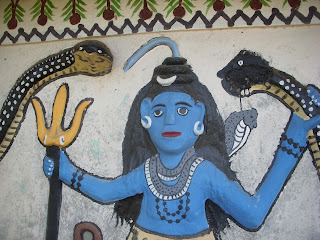The conceptual categories of secularism and communalism are impositions to subvert the Indian politics. In the Sanatana Dharma, there has never been any contradiction between the temporal or the spiritual concerns.
If viewed from the Western parlance, and rightly so, homo economicus is the perfect secular person. Market alone is the secular place. The politics is meant to preserve the secularity.
The domain of the sacred in the West is separated.
In our case, the problem is not that an ecclesiastical authority dominates the temporal affairs to their detriment. Rather the problem is the politicization of the ethnic identities by the vested interests, and in this context there is hardly any difference between 'secularism' or 'communalism'.
Our homo economicus would be a moral rationalist as her/his mooring is in the Sanatana Dharma. We must allow him to be at her/his best. If someone restrains the homo economicus, he acts not only anti-secular, but also anti-sacred. By hampering the well being of a commoner, they are both anti-human and anti-God.
Niraj Kumar Jha

